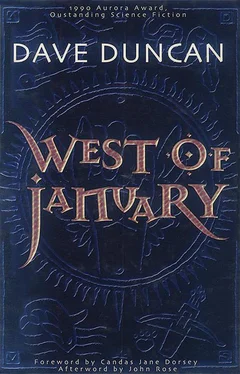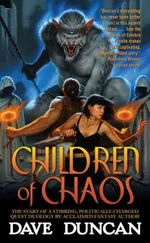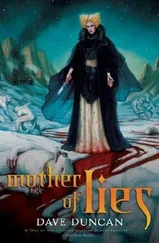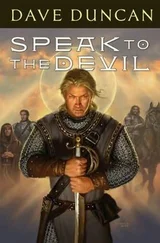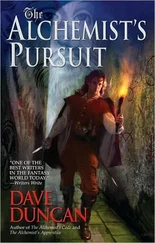─♦─
I wish I could have heard the settlements made over me. Traders’ business affairs are much akin to a school of minnows in a whirlpool, and I never came to understand more than one flicker of them. The men have incredible memories for the details of their dealings, all of which are done verbally. Mol Jar owned one bale of silk and in return could offer ten sacks of phosphate ore and one dying man. The phosphate had value; I did not. He obviously had no use for me himself, because he was heading in the wrong direction, and Kal Gos, who had owned the silk, did not want me either.
The argument between the traders and the ants would have been trivial compared to the bizarre and acrimonious hagglings that regularly took place between the traders themselves, both before they traded with outsiders and even more so afterward. The varied goods from a dozen wagons might be offered, but always one man would be deputized to do the dealing, with another sent along as witness. The respective values of everything sold and everything purchased must then be agreed upon and the profits fairly distributed. The system is contentious, inefficient, and utterly beyond an outsider’s comprehension. The traders love it.
As far as I ever could understand, I was exchanged by Mol Jar for one more sack of phosphate, then traded to somebody else for a quantity of assorted fabrics. After a few more exchanges I ended up being owned nineteen twenty-sevenths by Jat Lon, five twenty-sevenths by Lon Kiv, and three twenty-sevenths by Misi Nada. Her share was a conditional payment for services, if she could keep me alive. Had I died, then she would have owned no part of me, but that would not have stopped Jat Lon and Lon Kiv from disputing their respective residual interests in a worthless corpse.
─♦─
And so I began my life with the traders. Astonishingly Misi Nada did keep me alive. At first I was barely aware of her. Between pain, shock, and loss of blood, I was barely aware of anything. Later my wounds became fevered, and I screamed and babbled insanely while she cradled me in her great arms. She fed and bathed me, and treated me with herbals and potions collected from all over Vernier, sternly denying me the release I craved.
Slowly the fogs began to clear, and I would catch glimpses of bloated features that seemed like one more figment of delirium—a face baggy and shapeless, with an obvious mustache, with brown skin as coarse as a wood rasp, rimmed by ragged lank brown hair. Always she wore a drab sacklike garment, long-sleeved and all-enveloping. I had heard in the mine that trader women were big, but I had not realized how huge they could be. I had seen few herdmasters, even, who would have outweighed Misi Nada.
Slowly I came to understand that I was not to be allowed to die. I saw her then as an enemy, imprisoning me in a life that held only worse terrors in store. Hrarrh himself had once warned me to stay away from traders.
“Why?” I whispered, staring up at that globular face hanging high above me, a brown moon against a sky of well-crafted wooden planks. “Why?”
For a long time I was too incoherent to frame my question properly, and Misi was apparently too stupid to understand. Trader women were not only huge but also moronic, or so I had been told. Eventually she seemed to grasp what I was trying to ask: Why did traders, who sold slaves to the ants, buy wetlanders from them?
Then Misi paused in her endless chewing of paka leaves. Her amusement reminded me of the leather sack in which Pebble had brought home live eels. Squirming and pulsing, Misi’s face rearranged itself in surges of apparently unrelated motions until it wore a parody of a smile.
“Lucky!” she boomed. “Wetlanders bring good luck.”
“No! No!” I wanted to weep. “You cant expect me to believe that!”
She nodded, all her chins flexing. A finger like a sausage stroked along my beard, which she had already trimmed short in trader fashion. “Hair gold, like Our Lady Sun. Eyes like sky. Dawn child!”
Then she chuckled, which in Misi was a huge subterranean woofing sound. She bent over. Breasts like meal sacks crushed briefly down on me as she placed a big wet kiss on my forehead. I caught a whiff of the turpentine odor of paka. “Dawn child!” she repeated.
I had heard of Dawn, of course, a land of surging glaciers and sudden catastrophic floods. It is a place where few travelers venture, in whose misty twilight landscape of snow and storms, blond, blue-eyed men like me skim their canoes through icy waters. Of all the peoples of Vernier, only the seafolk and the wetlanders live beyond the reach of trader wagons.
“Sun child!” Misi said, straightening up. “Blessed!”
Traders worshipped the sun, and with that explanation I had to be content. There was no way to argue with Misi Nada. Later, when I felt stronger, I tried the same question on Jat Lon.
Trader wagons are long and narrow, balanced high on many pairs of wheels. Most of their length is taken up with the storage area, a blank box entered from the side doors. At the front is an open cab for the owners and their families. Among the traders, women usually own the equipment, and men, the livestock. The men do the trading mostly, although the goods may belong to either.
Misi’s cab was of standard design, being square with three sides taken up by big windows. Those could be closed off with shutters when the weather was bad, and their low sills allowed them to also serve as doors. This box was Misi’s home and my sickroom. It was furnished with a collection of cubical chests, and these she shifted around to suit her needs of the moment. Put together they made a bed large enough even for her; spread around they formed benches. With my legs immobilized in splints, I sat or lay on these and watched the world go by.
The wagon was driven by either Misi or Pula Misi, who was obviously her daughter. As my wits began to return, I came to realize that Pula was barely more than a child, although she was already taller than I was. Had she wanted, Pula could have been striking, even beautiful, for she had an unconscious grace and the inner glow of youth; but Pula invariably wore shapeless muumuus of sickly green, her hair was a greasy tangle, and her face stayed as blank as a cloud.
Trader wagons move very slowly, but hippos, like woollies, never sleep, and their inexorable crawl will eat up any distance eventually. Usually wagons are linked in pairs, a combination that the traders call a “train.” Rich owners may hook up three or even four wagons in that fashion, but any combination will allow the women to spell each other off at driving. Pula also owned a wagon, and hers was towed by Misi’s, its living quarters facing the rear.
Other trains came and went, although always we had three or four in our company. Trader men came calling quite often, the women very seldom. The locals I met not at all, and by far my most frequent companions were Misi and her family. The oldest was gray-haired Lon Kiv, but I soon decided that the true leader of the group was his son, Jat Lon.
Jat was younger than me, short and lean and fast as a blink. His russet beard was trimmed to a point and his mustache twirled up in horns. He wore tan leather trousers piped in bright colors and emblazoned with swirls of beadwork, and his shirt was intricately embroidered. I never met a man more dapper than Jat Lon, or more sociable. Gems flickered on his fingers and his ears and on the hilt of the rapier hanging from his belt. His hazel eyes flashed with intelligence, gazing intently at me when I spoke, studying my reaction when he did. Misi I had already dismissed as a kindly moron, capable of only a few very limited endeavors, but I could see that Jat Lon missed nothing. His penetrating gaze was only bearable because of the understanding half-smile that always accompanied it.
Читать дальше
